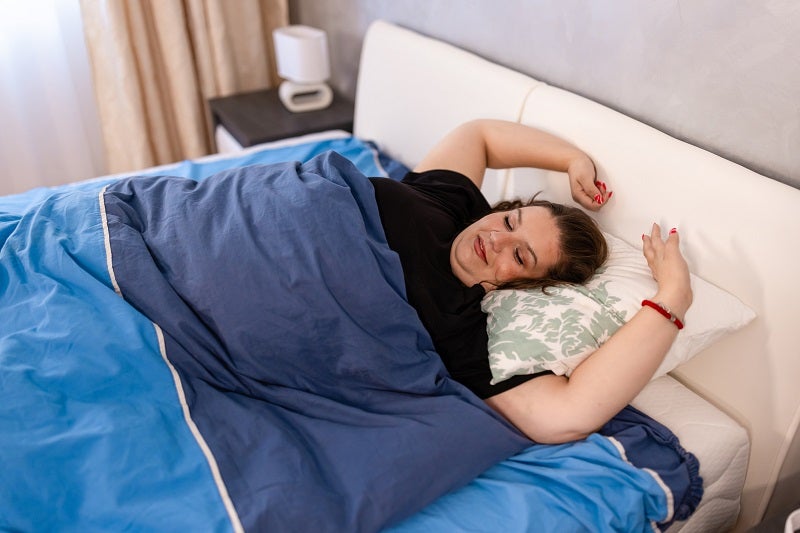Improving Sleep Apnea with Bariatric Surgery: What You Need to Know
June 27, 2024
Categories: Bariatric Surgery & Weight Management, Health & Wellness, Men's Health
Tags: bariatric surgery, weight management, sleep
We stop doing a lot of things while we are sleeping, but breathing should not be one of them! Sleep apnea is a disorder in which patients repeatedly stop and start breathing. One of the more common types associated with obesity, called obstructive sleep apnea, can often improve as a result of bariatric surgery.
“Many patients who have obstructive sleep apnea don't know they have it,” says Tallal Zeni, MD, Trinity Health IHA Medical Group, Bariatric and General Surgery. “It can be a challenge to get a sleep study done, and patients often think it’s no big deal. However, sleep apnea does have a long-term impact on cardiovascular health and can even lead to sudden death.”
Although there are multiple forms of sleep apnea, the obstructive version is more common in patients who are overweight. “Breathing is a controlled by the central nervous system while we sleep,” Dr. Zeni continues. “However, it is also a mechanical process. When there is more weight in the head and neck area, those mechanics become more difficult for the body.”
Obstructive sleep apnea occurs when the muscles in the back of the throat relax. When the muscles relax, your airway narrows or closes as you breathe in. You can't get enough air, which can lower the oxygen level in your blood. Your brain senses that you can't breathe, and briefly wakes you so that you can reopen your airway. This awakening is usually so brief that you don't remember it. You might snort, choke or gasp. This pattern can repeat itself 5 to 30 times or more each hour, all night. This makes it hard to reach the deep, restful phases of sleep.
Many people equate snoring with sleep apnea, and it’s true that many people who have this disorder do snore. However, not everyone who has sleep apnea snores. There are many other symptoms, including gasping for air during sleep, waking with a dry mouth, morning headaches, insomnia, and excessive daytime sleepiness.
Many patients with sleep apnea are forced to rely on a CPAP machine that keeps airways open so they can breathe evenly during the night. One of the side benefits of bariatric surgery is that the resulting weight loss helps reduce the pressure on the throat and neck. This, in turn, helps reduce the problems of obstructive sleep apnea. “We see about a 60% resolution rate for sleep apnea after bariatric surgery,” Dr. Zeni notes. “The majority of people are able to get rid of their CPAP or other types of machines.”
That improvement occurs gradually as patients continue to lose weight after surgery. “I would recommend that a patient waits for about 6 months past surgery before doing another sleep study,” Dr. Zeni concludes. “The sleep study is the only measurable way to know if the sleep apnea has decreased or disappeared altogether.”
Our bariatric teams coordinate with primary care physicians to help ensure the best possible outcomes for patients with sleep apnea.
Take the first step today.
If you would like to learn more about how bariatric surgery could help you achieve a healthier lifestyle, call 844-423-7564 or register for our free seminar today.




